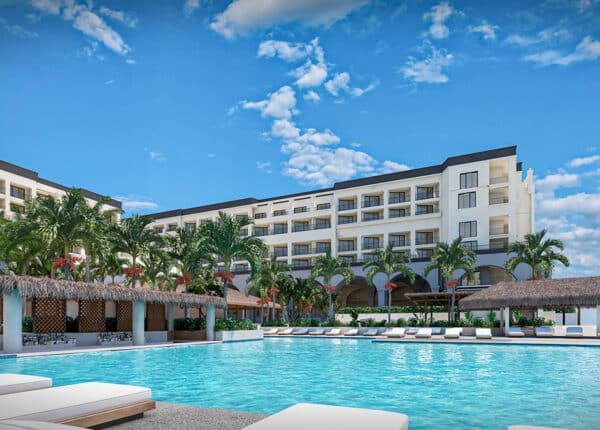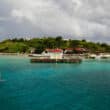Op-Ed: Sustainable Development and Agriculture in the Caribbean
By Kariyma Baltimore
Op-Ed Contributor
THE ISSUES of food production, agricultural development policies and food security have generally ranked high on the Region’s “Priorities List.”
Agriculture is viewed as an important sector in most Greater Caribbean countries, especially in light of the economic diversification which has occurred over the last decades, and the emergence and growth of other sectors such as tourism and professional services.
Some, however, have strongly suggested that the agriculture sector within the Region is rapidly declining.
Yet in recent times, with the looming concerns of sustained food production, food security, and food prices plaguing many greater Caribbean countries there has been a resurgence of support and development focused on agriculture.
“Agricultural development is being rediscovered as an essential element of economic growth.” — Timothy O Williams and Ransford Smith
It has been acknowledged that the development of the agriculture sector will have significant and meaningful impact on domestic food production; food security; reduced dependence on food imports and overall economic and social welfare.
Sir Arthur Lewis’s theory on economic development has as a core pillar “the importance of food supplies in sustaining economic growth.” Lewis viewed agricultural development as a critical component of growth in the economy.
Timothy Williams and Ransford Smith, in their paper Rethinking Agricultural Development: The Caribbean Challenge note that, “with so many forces reshaping agriculture and with continuing dependence on food imports, a rethink of agricultural development approaches in the Caribbean, (and by extension the Greater Caribbean) is indeed necessary.”
At this juncture we are compelled to ask, “what strategies can be effectively employed to produce the returns and gains from agriculture that are sorely needed?”
Agricultural development strategies are not new to the Region, over the last sixty (60) years the Caribbean has pursued a number of strategies towards the promotion and growth of the sector.
“The challenge facing policy makers is to craft new agricultural development strategies to improve agricultural productivity, boost domestic food production and enhance overall economic welfare,” Williams and Smith write.
There must be recognition of the acute forward and backward linkages between agriculture and other industries, as well as the deep connections between agriculture, trade, economic growth and development. Growth in the agriculture sector has the possibility therefore of contributing to the expansion of the agro-processing industry, providing new avenues for innovation; providing alternative engines of growth, promoting local production and opportunities to substitute imports.
Policies therefore should address actions to: tap the Region’s competitive advantage, especially the wealth of its natural resources; attract more investment, and increase the Region’s food production and food security; and “call for a more integrated and comprehensive approach, in which trade policy plays a central role in conjunction with other sectoral, national and regional policies.
At both the national and regional level agricultural development plans, strategies and initiatives are being developed, which see agriculture as being of great economic and social importance.
The Association of Caribbean States (ACS) through its mandates of cooperation and concerted action supports the development of such initiatives which at their core seek to improve the economic and social existence of our Greater Caribbean Communities.
Specifically in the area of agriculture the ACS in collaboration with the Government of Colombia, and the organization CLAYUCA has considered it strategic to offer an International Course on Modern Technologies for Cassava Production, Processing and Utilization, to support the sustainable development of the cassava crop in the Greater Caribbean Region.
Cassava ranks high among the major crops produced and consumed in the Region. It is an important source of cheap energy and it also has a high content of vitamins and minerals. The cassava crop is generally produced, processed, consumed and marketed at the level of small rural communities. However, the cassava crop has historically received little attention from policy makers, national agricultural research and agricultural technology transfer systems and the donor community.
Given that most countries in the Caribbean Region are currently facing a challenge to reduce the large amount of food products that must be imported to meet the raising demands of the population and industrial sectors, the course through specific focus on cassava as a pilot crop aims to impact upon designing and implementing agricultural development policies aimed at promoting local production of foods that are widely consumed, as well as promoting increased consumption of foods that are produced locally by offering training and practical experiences with the intent that lesson learnt can be translated into national development plans across the Region.
This training Course will see participation from twelve (12) countries in the Region, where the cassava occupies a prominent place in the agricultural production system, and will run from July 28th to Aug. 2, 2014 in Cali, Colombia.
This initiative supports the argument that there must be a strengthening of agricultural development, and offers to the Region one avenue through which this can be addressed. This initial step with cassava production training can be further advanced with a focus on other prominent agricultural products.
The offshoots of such initiates will not only have national reach, but also the potential for enhanced regional trade through agricultural trade, sectoral linkages and expansion of the agro-industry.
Agriculture is too important to the economic and social welfare of the Greater Caribbean Region and should not be allowed to slip into decline. Agricultural development policies and initiatives in tandem with national development policies as well trade policies should be developed, implemented and sustained in order to achieve enhanced economic growth and welfare for our Greater Caribbean Nations.
Kariyma Baltimore is Trade Advisor the Directorate of Trade Development and External Economic Relations.
Note: the opinions expressed in Caribbean Journal Op-Eds are those of the author and do not necessarily reflect the views of the Caribbean Journal.







